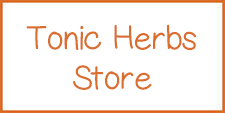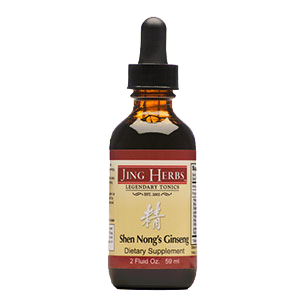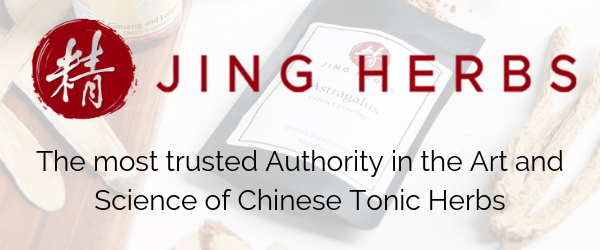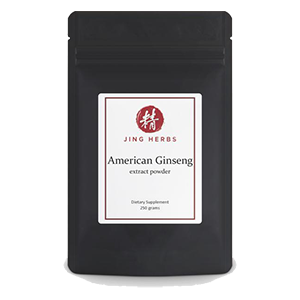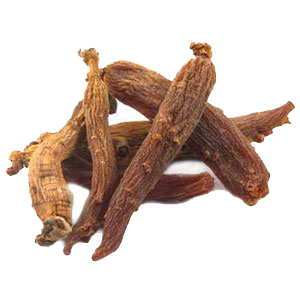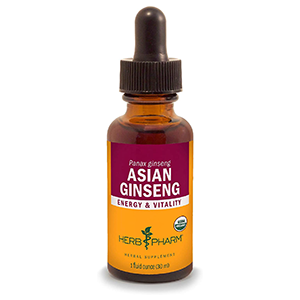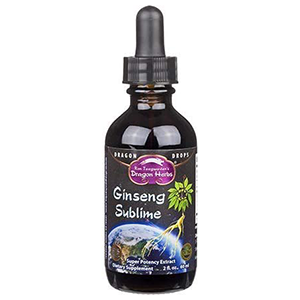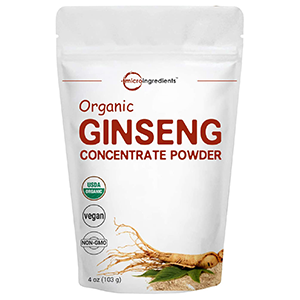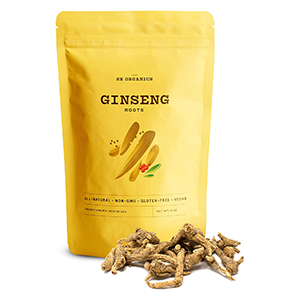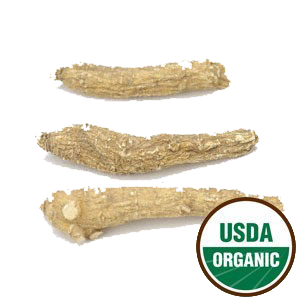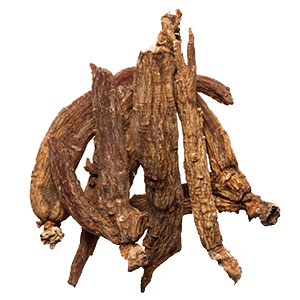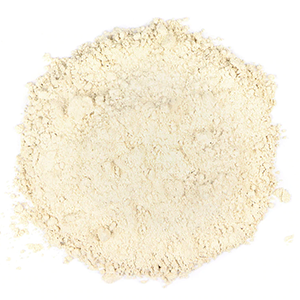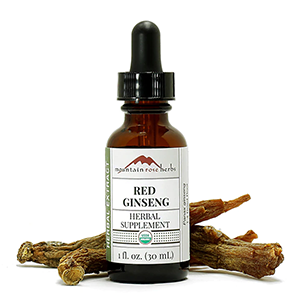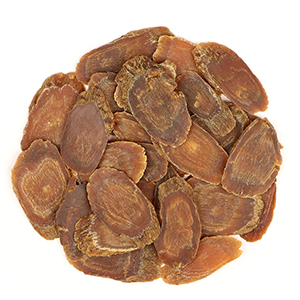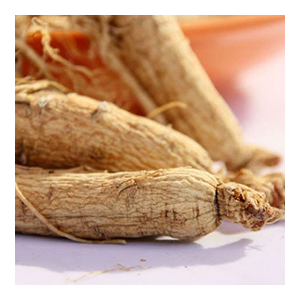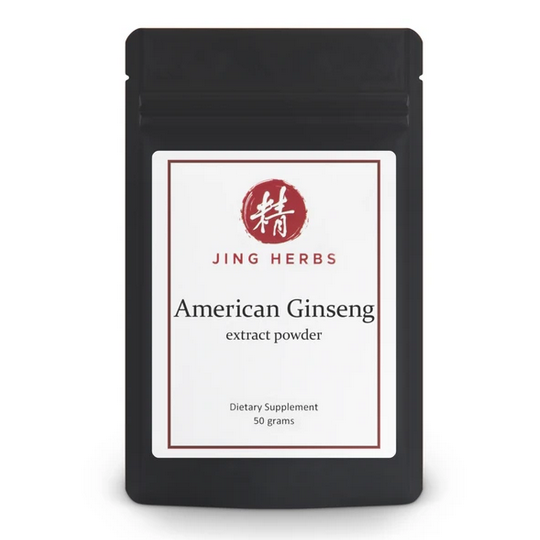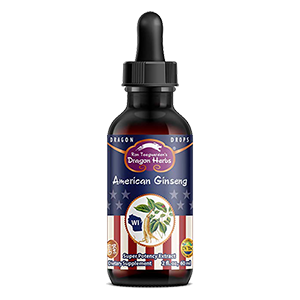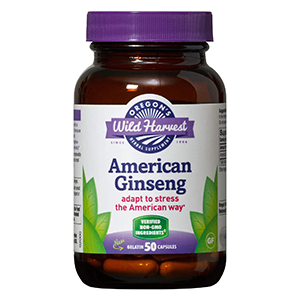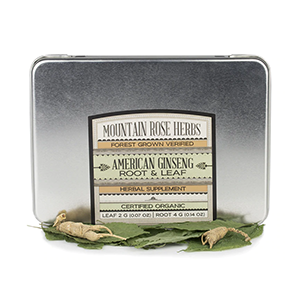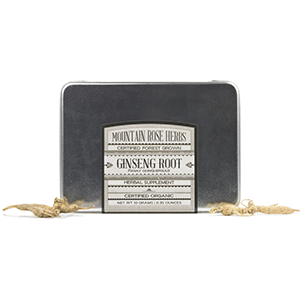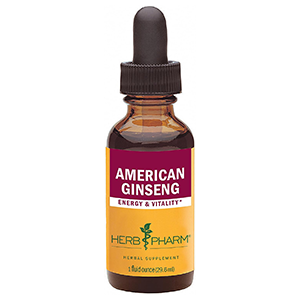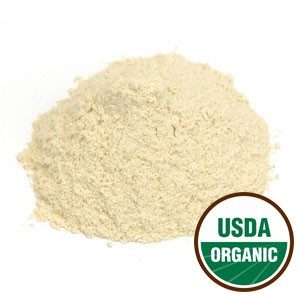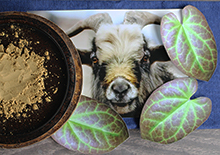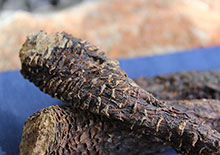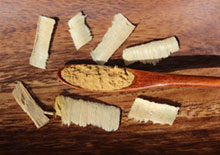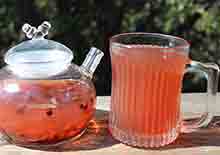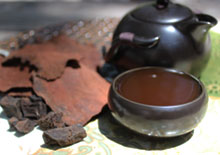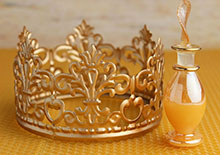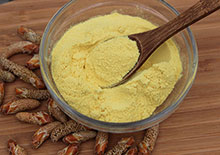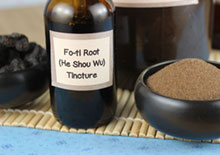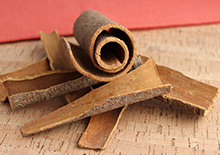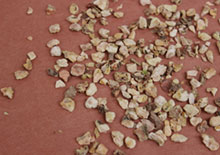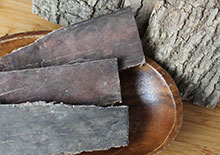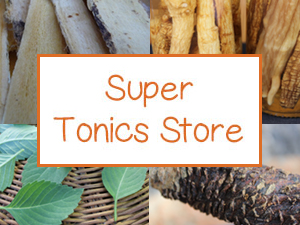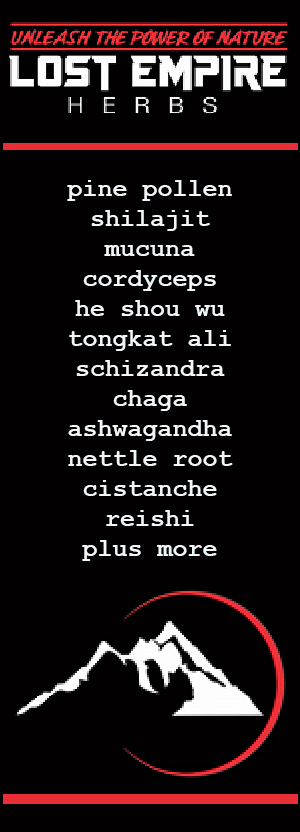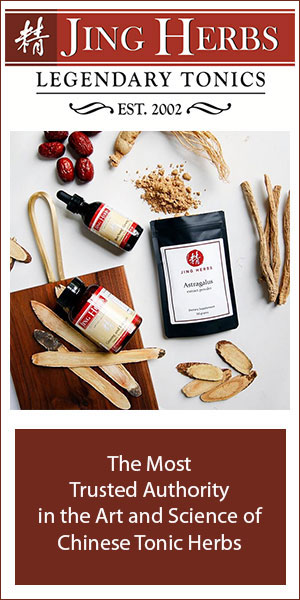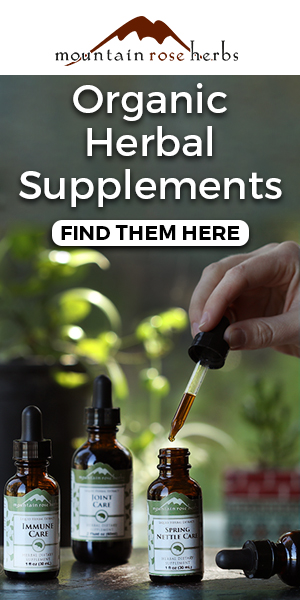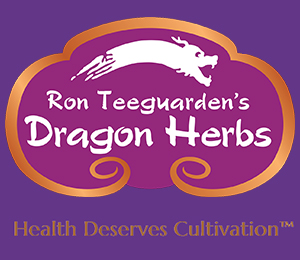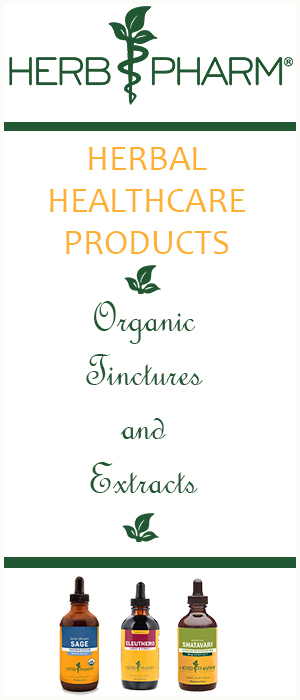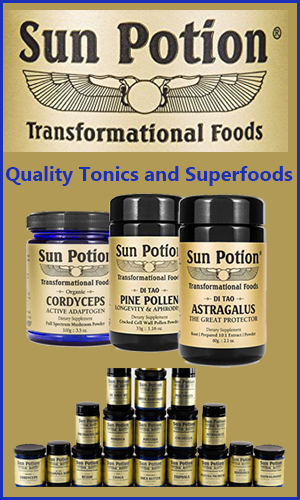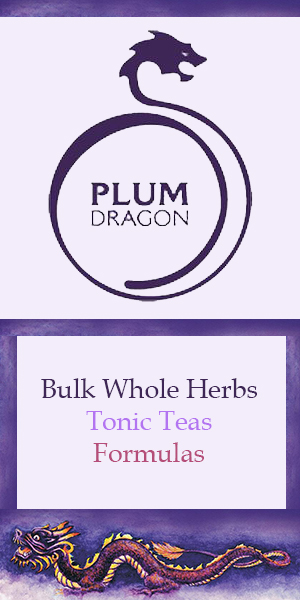- Home
- Chinese Herbs
- What is Ginseng
What is Ginseng Good For? The Difference Between Varieties
Intro | Chi Tonic | What is Ginseng? | Panax | American | Asian Vs. American Ginseng | Which is Appropriate? | Siberian Ginseng | Health Benefits | Types | How to Use | Precautions | Shop
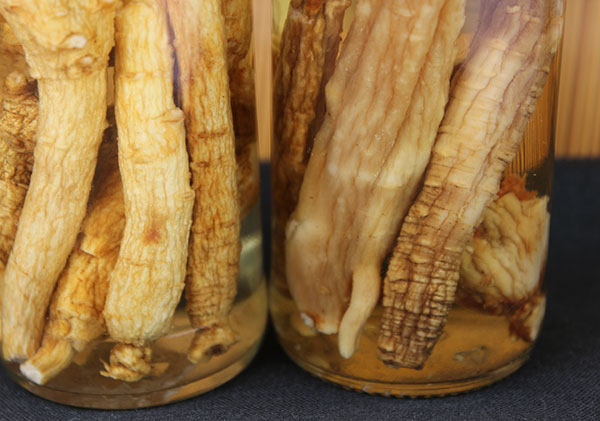
Panax ginseng is one of the most prized Chi (Qi) tonics used in Chinese herbalism. Consumed for thousands of years and listed as a top major tonic in the herbal classic the Shennong Ben Cao Jing, it is one of the most widely researched of the Chinese herbs. Often referred to as the "king of herbs", it is well-known around the world for its energizing and immune modulating properties.
Containing triterpene saponins called ginsenosides, the root tea, tinctures and extracts are supportive to the endocrine functions with influential restorative effects on the central nervous system.
Table of Contents
Intro | Chi Tonic | What is Ginseng? | Panax | American | Asian Vs. American Ginseng | Which is Appropriate? | Siberian Ginseng | Health Benefits | Types | How to Use | Precautions | Shop
The etymology of the word "panax" in fact comes from the Greek word "all heal", originating from the term "panacea", and describes the many diverse uses for this revitalizing root.
There are several varieties of ginseng that have different characteristics depending on their sourced locations. Generally, the two classifications of "true ginseng" are often referred to as "Panax ginseng" (Asian ginseng's) or "American ginseng", both of which originate from the Panax genus.
Although there is only one species of American ginseng, there are many variations of Asian ginseng growing most predominantly in parts of China and South Korea. All the different varieties of ginseng come with their own set of distinct health enhancing features and specific amounts of active constituents.
The most potent ginseng available is wild ginseng. However, this variety is rare and often quite costly. Wild ginseng's typically grow in colder climates, at high altitudes in forested regions that maintain pristine soils high in minerals and other nutrients.
These remote locations have not been depleted by farming practices, holding a level of purity uncontaminated by commercial cultivation. Most quality ginseng liquid or encapsulated extracts are blends of many different types, which usually included some wild roots.
Today, Panax ginseng is extensively cultivated in cooler climate zones of Asia with American ginseng growing mostly in Canada and the United States.
When it comes to using ginseng root as an herbal superfood, it is significantly important to take the most appropriate species unique to your particular constitution and health issues.
Many commercial preparations frequently include different varieties to create a complete "ginsenoside" profile and balanced formula suitable for a wider range of people.
Ginseng is the type of Chinese herb where a little bit goes a long way as far as potency and is best taken in smaller amounts and used over an extended period of time. Effects are cumulative when taken on a consistent basis over many months, or better yet, years or throughout the course of one's lifetime.
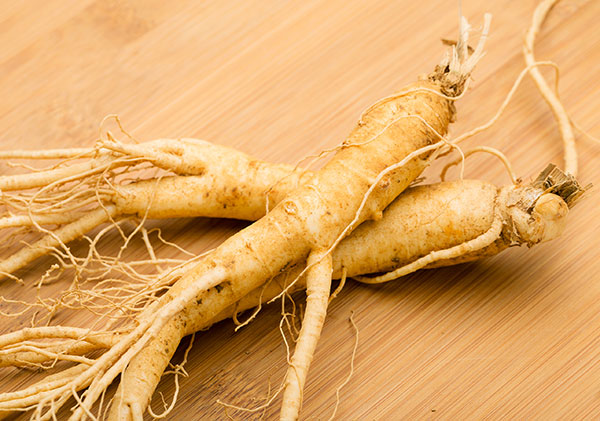
Primary Chi Tonic of Chinese Herbalism
Panax ginseng is mainly considered a Chi (Qi) tonic but also works on all "three treasures", indirectly supporting both Jing and Shen. Chi tonics work to build sexual energy, creative drive and physical strength. They are fortifying to the respiratory, digestive and immune systems.
Working directly through the lung and spleen organ systems, they also indirectly help to tonify the kidneys and strengthen surface energy or "Wei Qi", closely associated with the body's immune defense. The higher the grade of ginseng the higher amount of Shen ("spirit") is believed to be contained within the root.
The Legend of Li Ching-Yuen
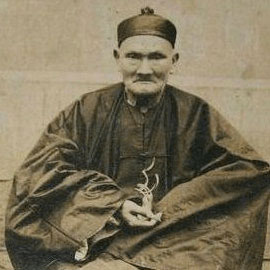
Ginseng is native to China and has a deep seated history among Taoist longevity masters who were proposed to have lived healthy and youthful lives well over the age of 100. One of the greatest legacies told throughout Asia is the story of Li Ching-Yuen, tonic herbalist and Taoist master. As the legend depicts Li Ching-Yuen was said to have lived to the age of 252 consuming large doses of tonic brews and tinctures consisting of ginseng, he shou wu, reishi, gotu kola and goji.
He
was actually published in the 1933 edition of the Guinness Book of
World Records as the world's oldest living man (1678-1930), but since
then this claim as been retracted as myth. However, this story represents the traditionally recognized notion of
Taoists living well beyond what we think is humanly possible due in part to the consumption of these tonic herbs.
What is Ginseng?
Ginseng is a soft fleshy, light tan, gnarled root that is often described to look like a human body with little shoots coming off the main root that sometimes resemble arms and legs. The Chinese term for Panax ginseng is ren shen, which means "person" (ren) and "plant root" or "spirit" (shen).
There are several ginsengs classified under the genus Panax, but the species identified as "true ginsengs" are specifically Panax ginseng and Panax quinquefolius. These are the two most common types used for their potent adaptogenic and tonifying qualities, characterized by the presence of ginsenosides, gintonin and other unique compounds not found in other species.
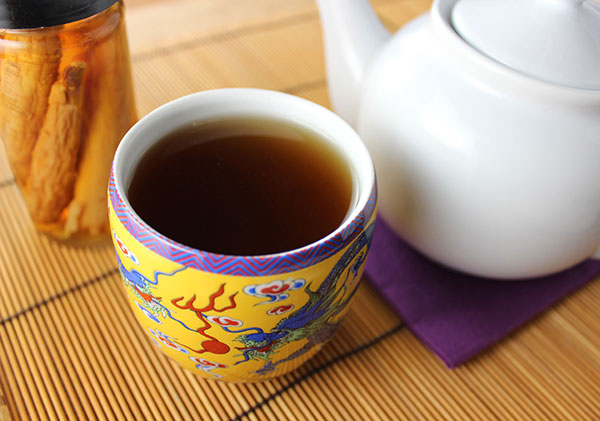
Panax Ginseng (Ren Shen)
Asian ginsengs (Panax ginseng) typically grow in colder climate zones and are a perennial plant with fleshy roots that develop concentrated amounts of unique health promoting compounds the longer it grows. Generally, all high quality ginseng has matured to a minimum of at least 6 years of age, increasing in value and ginsenoside content the older it becomes.
Wild Panax ginseng is said to embody the Yin energy of the earth and also develops a strong Shen energy because it must adapt to harsh conditions in order to survive. This wisdom is believed to condense into its root system and transfer to those who consume it.
Panax ginseng grows wild mostly in Korea, Northeast China, Manchuria, Bhutan and parts of Eastern Siberia, but is becoming increasingly rare from over-harvesting and is largely considered an endangered species.
However, there are some semi-wild versions grown in a controlled manner from wild seeds in natural forested environments utilizing integrative growing techniques. Ginseng, on a large scale, is cultivated on plantations mostly in China and Korea.
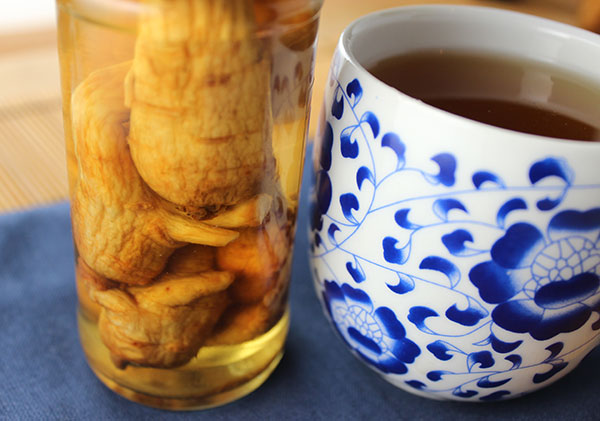
American Ginseng (Xi Yang Shen)
Visit our American ginseng page for more about this prized species.
American ginseng (Panax quinquefolius) grows primarily in parts of southeastern Canada and eastern North American regions, especially Ontario, the state of Wisconsin and Appalachian Mountain region.
Referred to as xi yang shen in Chinese-English, American ginseng root is very similar looking to Panax ginseng with a shape resembling a small parsnip that continues to branch-off as it develops.
Ginseng Preparation Techniques
When fresh Asian ginseng is harvested it is usually prepared by either steaming the root before drying, which is called red ginseng. Or, likewise, it can be directly peeled and sun-dried which is known as white ginseng.
Korean red ginseng gets its red color from a special preservation method that involves steaming with the peel intact and before the drying process is infused with other herbs, often ancient secret recipes.
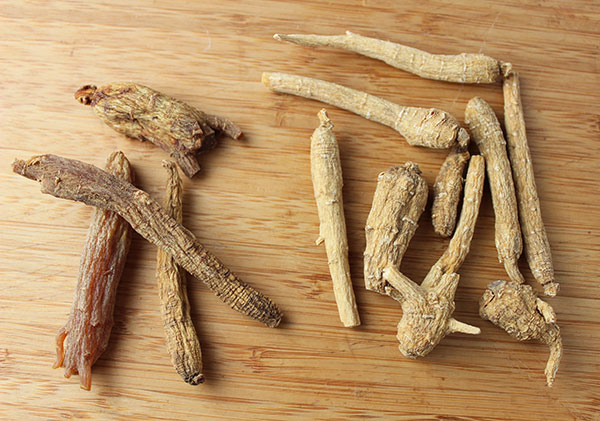 Red Panax Ginseng and American Ginseng
Red Panax Ginseng and American GinsengAsian Ginseng Vs. American Ginseng
The main difference between Asian Panax ginseng and American ginseng varieties is that Panax is a more warming Yang stimulant, whereas American is a more Yin, cooling and calming tonic. Both are energizing but in different ways. These qualities are largely a result of the temperature in which it grows. Colder environments produce Yang characteristics and temperate climates produce more Yin essence.
These factors also create a different ratio of ginsenosides, the main active compounds found in the roots. Asian ginseng consists of ginsenosides Rb1 and Rg1, while American ginseng has very little Rg1. Ginsenoside Rg1 is regarded a natural energy stimulant which helps to increase cognitive performance.
The Rb1 constituents in Am. ginseng have calming effects on the central nervous system, yet are not fatigue-inducing but energizing in a restorative sense.
Asian ginseng is thus more drying to the body, while American helps to generate fluids. Korean ginseng is known to be the "hottest" of the Asian types. This becomes significantly important when choosing the most suitable option for one's particular body type.
Which is Appropriate for Your Unique Constitution?
It is significantly essential to select the appropriate ginseng for your unique body type or constitution. This is especially the case when using ginseng alone as a dietary supplement.
Asian ginsengs, especially Korean ginsengs, are not recommended for Type A constitutions who get hot easily, sunburn or are quick to anger. Panax ginseng is best for those with a neutral or cool constitution. Korean ginseng is particularly appropriate for those who have a pale complexion, are timid and extremely weak.
American ginseng is very good for Type A personalities and those with excess heat. This form of ginseng is recommended for those with a "false fire" or chronic inflammation issues.
In addition, recommendations may vary depending on the particular season or weather conditions. In hot dry climates, American ginseng might be more fitting and in cold moist conditions, Asian versions may be the preferred choice.
What About Siberian Ginseng?
Siberian ginseng (Eleutherococcus senticosus), although a powerful adaptogenic tonic herb, is actually not a true ginseng and comes from a totally different plant genus.
Siberian ginseng contains eleutherosides as opposed to ginsenosides and is more of a fibrous woody root than the fleshy soft root of the Panax species.
Eleuthero root, as it is sometimes called, is very common in formulas using Panax ginseng, which may also include other Ayurvedic herbs and tonics, like rhodiola, gynostemma, goji berries, reishi and fo-ti.
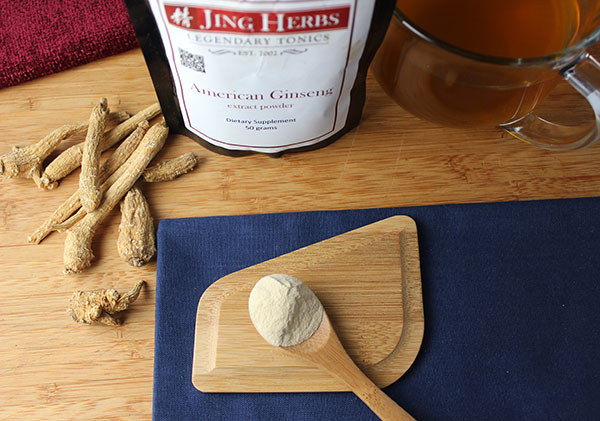
Ginseng Benefits
1) Powerful Immune System Modulator
2) Natural Herbal Energy Stimulant
3) Known Aphrodisiac, Supports Healthy Libido
4) Neurological and Cognitive Functions
Powerful Immune System Modulator
Both Asian and American ginsengs are well-known in the scientific community for their profound effects on regulating the immune system. Ginseng extracts and teas accomplish this by stimulating adaptive immune responses that can directly influence different types of immune cells such as macrophages, natural killer cells, B cells and T cells.
A number of compounds are shown to be responsible for these various effects. Top on the list are the triterpenoid saponins unique to ginseng roots referred to as the "ginsenosides." The main ginsenosides include Rb1, Rg1, Rg3, Rh1, Re, and Rd, but many others are sometimes present.
Each type of ginseng is made up of diverse combinations of these
constituents depending on the age of the root, the climate in which it
is grown and also the methods used to prepare it.
The ginsenoside Rg3, a glucoside precursor of protopanaxadiol, is believed to offer chemoprotective support and, in a 2013 study
published in the journal "Oncology Reports", the "protopanaxadiol group
of ginsenosides was reported to significantly reduce tumor size in mice
treated."
In a review, examining the immunomodulatory properties of ginseng, it is referenced that it works "mainly through the improvements in cell-mediated immunity consisting of cytotoxic T cells and NK cells, while other mechanisms such as oxidative stress, apoptosis, and angiogenesis are also involved."
Ginseng is An Herbal Adaptogen
Ginseng root is a top superfood and dietary supplement possessing strong adaptogenic qualities. Adaptogens are known to help the body "adapt" to or withstand mental and physical stress. They protect the body from the effects of trauma, anxiety and fatigue, normalizing the over-activity or under-activity of the organs and glands.
Ginseng is therefore known to have a positive influence on not only the immune system, but also on the adrenals, the thyroid and especially the pituitary gland, which plays a significant role in regulating the endocrine system.
Natural Herbal Energy Stimulant
In the Chinese system, ginseng fortifies the major meridian systems of the body that are in charge of creating energy. These two meridians are the spleen meridian and the lung meridian. As an herbal stimulant, ginseng, particularly Asian ginsengs, are renowned for their ability to provide a quick boost of energy but, unlike caffeinated substances, are both activating and restorative to central nervous system functions.
Ginseng is often used in herbal preparations using other Chi tonics, like astragalus root, which also works on building Chi as well as boosting immune health.
In one 2013 study analyzing the anti-fatigue effects of Panax ginseng on subjects with chronic fatigue, it was concluded that "P. ginseng can be used to combat chronic fatigue" mostly due to its antioxidant support. Other 2015 research, studying the effects of Panax ginseng on fatigue induced by tumor growth, it was shown that "Panax ginseng is safe and improves cancer-related fatigue as well as overall quality of life, appetite, and sleep at night." Under such circumstances, however, we always recommend consulting with your medical physician before attempting dietary supplementation.
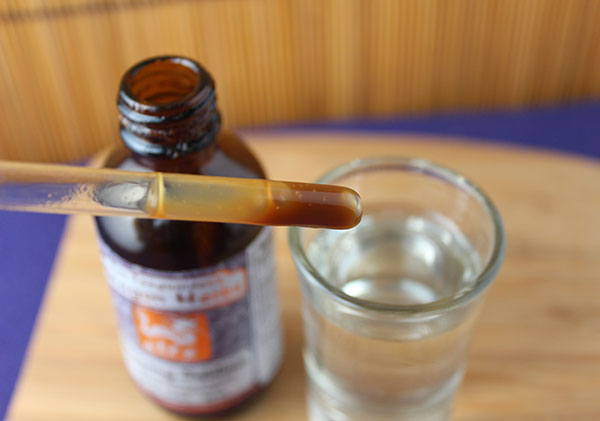
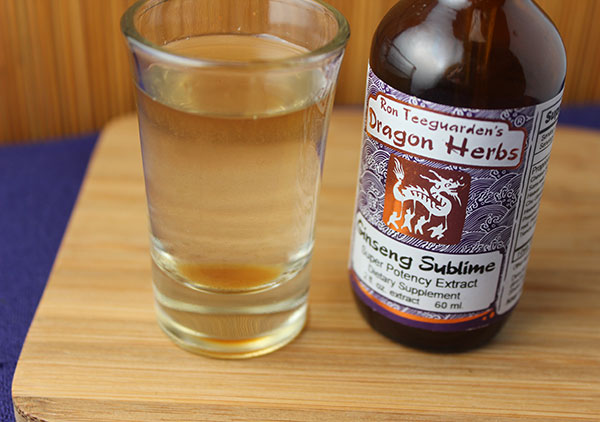
Known Aphrodisiac, Supports Healthy Libido
Famous as a "male tonic herb", Asian ginseng has been used for centuries as an aphrodisiac for increasing sexual energies and as a supportive tonic for both infertility and impotence.
Ginsenosides, like Rg1, are plant-derived steroid glycosides that help to activate androgen levels, specifically testosterone, especially when taken at higher doses. A review in the July 2013 issue of Spermatogenesis, it was identified that Rg1 is the "major active constituent in Panax ginseng responsible for the increase of serum testosterone levels and improvement of copulatory behavior."
According to Steven Harrod Buhner, in his book "The Natural Testosterone Plan", Panax ginseng activates the release of the luteinizing hormone which "stimulates the synthesis and secretion of testosterone into the bloodstream."
A commonly consumed dietary supplement among professional body builders and athletes, Panax ginseng also contains certain ginsenosides that increase the conversion of arginine to nitric oxide, which is helpful for building strength and muscle mass.
Can Also Benefit Women
Despite ginsengs reputation as a male herb, it is in fact considered beneficial for both men and women alike. Because of its normalizing effect on the endocrine system, it can be useful as a natural hormone balancer and is known to improve blood flow to the sex organs and glands in females as well as males.
Women experiencing peri or post-menopausal symptoms are said to benefit from American ginseng supplementation as it is cooling to the body and may potentially support an increase in the female estrogen hormone, estradiol.
Neurological and Cognitive Functions
Both Panax ginseng and Panax quinquefolius, have been demonstrated in some research to improve neurocognitive functions and enhance memory. (*)
In one review entitled "Effects of Panax ginseng in Neurodegenerative Diseases", certain ginsenosides in Asian ginseng were reported to exhibit benefits for neurological disorders such as Parkinson’s disease and Alzheimer’s, with "Rd, Re, and Rg1" claimed specific for PD and "Rb1, Rg1-3, Re, and Rh2" specific for AD.
In one 2015 published study, the gintonin compound found in ginseng was shown to be helpful for stimulating neurotransmitter release of dopamine and thought to explain its modulating effects on the nervous system. Ginseng ginsenosides have also shown to exhibit antidepressant-like actions in animal studies by modulating the function of hypothalamic-pituitary-adrenal axis. (*)
Ginseng extracts are clinically used as an herbal supplement for the treatment of depression, anxiety and chronic fatigue syndrome. In a published double-blind study, a standardized American ginseng extract, called Cereboost, was shown to improve brain function during prolonged periods of mental activity among university students, ranging 18 to 40 years of age.
Ginseng is can be especially beneficial when combined with herbs like ginkgo biloba to enhance cognitive performance.
Purchasing Higher Quality Ginseng's
There are many cheap ginseng supplements and preparations on the market. It is therefore important to avoid low quality ginseng products as they are known to have the reputation to cause neck and shoulder tension, headaches and high blood pressure. Mature high quality roots do not normally have these side-effects.
Learn more about the potential contaminants common in herbs sourced from China and how to guarantee purity.
Currently, there are only a few companies who also offer organic ginseng roots. As of 2015, Mountain Rose Herbs offers certified organic whole red ginseng as well as whole American ginseng roots, in addition to a forest grown powdered ginseng product and liquid extracts using a combination of many different unique varieties.
Dragon Herbs also offers some organic Asian ginsengs in their herbal formulas, like our personal favorite Ginseng Sublime, and their House Ginseng product is 100% organically certified.
The company Jing
Herbs is another trusted source of high quality ginseng in the form of powdered extracts and liquid formulations. Shen Nong's Ginseng is one of their top sellers and contains 6 different varieties including wild American ginseng as well as the rare and prized wild Manchurian variety. Jing Herbs is our favorite supplier of American ginseng extract powder.

Types of Ginseng
- Whole Roots - These are the whole dried roots to be further processed as a tea or tincture.
- Root Slices or Powder - Many ginseng's come in the form of slices or as a powder which can be decocted or tinctured in alcohol.
- Liquid Extracts - These are either created from both a hot water extraction as well as alcohol infused roots or are made exclusively from alcohol-based tincturing methods.
- Powdered Hot Water Extracts - These are specialized powders that originate as a concentrated tea and are spray dried to create an instant powder ready for immediate use in teas and drinks.
- Herbal Formulations - Ginseng is widely used in many different herbal formulas with other tonic herbs. These preparations can be specific to one's health goals and/or issues.
How to Use
Ginseng has a distinctive rooty, sweet and slightly bitter taste and is
usually consumed as a tea, powder or liquid extract. It can also be
eaten raw by sucking on thin slices of the root, however, more
beneficial compounds are released by decocting, tincturing or hot water
extraction methods.
Ginseng teas can be made by simmering the whole dried root or slices in water, preferably in a glass or ceramic pot with a lid. For optimal results, this is often accomplished using a ceramic "ginseng cooker", but can also be achieved using a double boiler method by placing a jar or tea pot inside a simmering water bath.
When preparing ginseng as a tea many herbalists often recommended brewing it for at least 8 hours, which can likewise be attained by using a crock pot.
Powdered extracts and liquid solutions are convenient to use in teas, water, smoothies or other beverages. We also use ginseng in raw desserts like our vegan pecan pie recipe.
As we mentioned, it is important to take the ginseng most suitable for your individual body type and state of health. Short-term use of ginseng can provide some benefits, but both Asian and American ginseng are ideally best consumed on a regular basis for many months, years or throughout one's lifetime. The health effects of many of the major tonic herbs, like ginseng, are known to increase with daily use.
There are, of course, times when you may wish to discontinue consumption for a short period of time. This might the case with acute illnesses or when undertaking a detox regimen for a number of days in a row.
According to Ron Teeguarden, "It is a strict rule of Chinese tonic herbalism that the tonic herbs are
not to be used when acutely ill, even if the acute illness is just a
common cold. Correct any acute ailments before starting to use the
tonics, and suspend their use if and when you catch a cold or other
acute illness."
Average Dosage
- Powdered Extracts - 2-4g or 1/2-3tsp - 2 times/ day
- Liquid Solutions - 1/2-3 droppers - 2 times/day
Dosage amounts will vary largely depending on one's constitution and unique health goals and issues. The amount may additionally differ depending on the concentration of the ginseng product. It is therefore a good idea to follow the recommend dosage advice on the supplement label.
Precautions:
Ginseng is a relatively safe tonic to take in mild to moderate doses and is especially appropriate when balanced with other herbs in specific tonic formulations. Overdosing on Asian ginseng (especially low quality) may come with side-effects that may include insomnia, headaches, high blood pressure and neck tension. Seek the advice of your physician when pregnant, breast feeding or taking prescription medications.
Shop Related Products (About Affiliates & Amazon Associate Paid Links)
Affiliate Disclaimer: This section contains affiliate product links. If you make a purchase through our recommended links, we receive a small commission at no additional cost to you. Thanks for the support.
